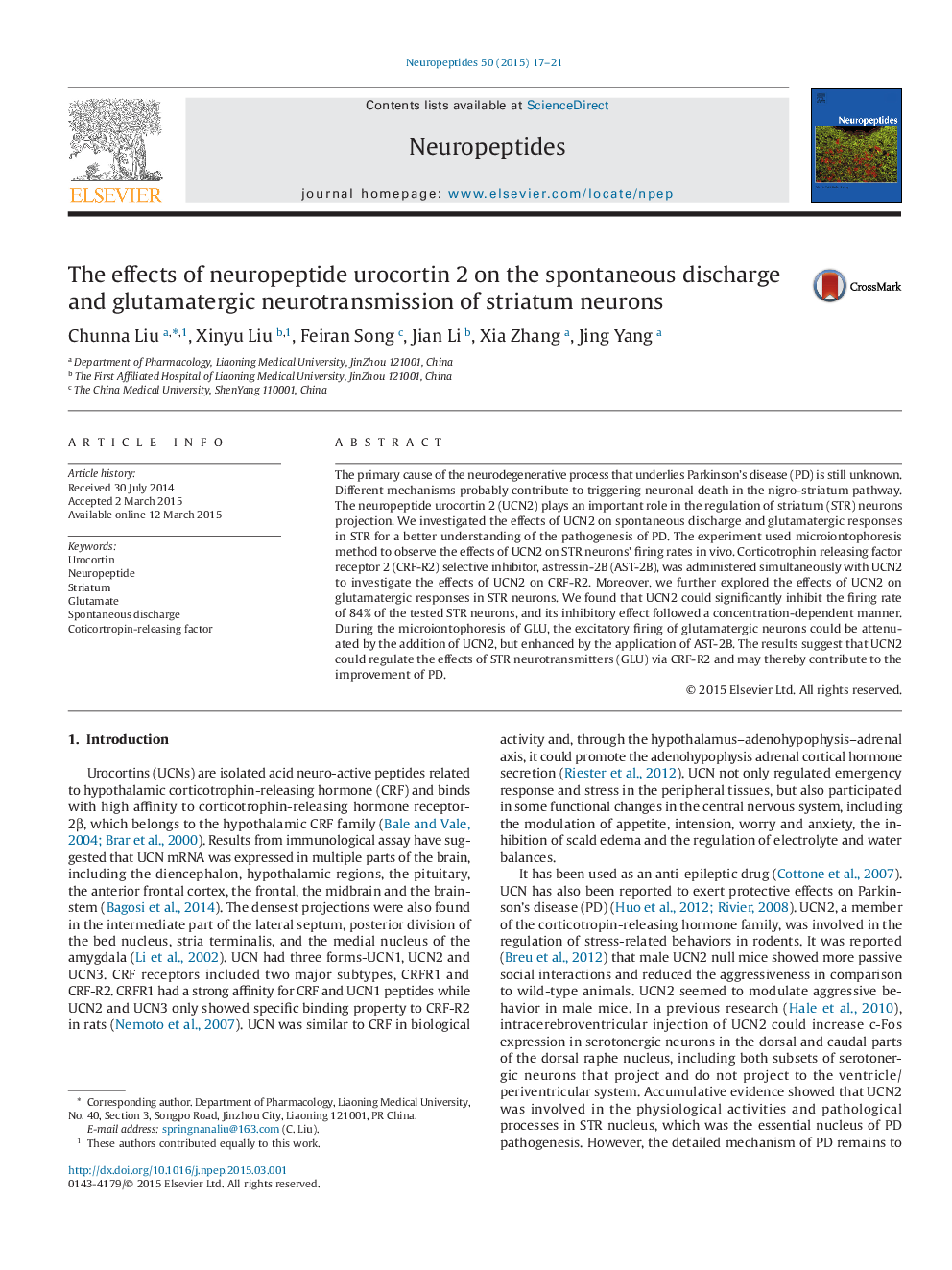| Article ID | Journal | Published Year | Pages | File Type |
|---|---|---|---|---|
| 2807999 | Neuropeptides | 2015 | 5 Pages |
•The neuropeptide UCN2 regulates STR neuron projection.•UCN2 inhibits the discharge activity of STR neurons via binding to CRF R2.•UCN2 reduces the excitation of glutamatergic neurons.•Our results may contribute to the improvement of PD.
The primary cause of the neurodegenerative process that underlies Parkinson's disease (PD) is still unknown. Different mechanisms probably contribute to triggering neuronal death in the nigro-striatum pathway. The neuropeptide urocortin 2 (UCN2) plays an important role in the regulation of striatum (STR) neurons projection. We investigated the effects of UCN2 on spontaneous discharge and glutamatergic responses in STR for a better understanding of the pathogenesis of PD. The experiment used microiontophoresis method to observe the effects of UCN2 on STR neurons' firing rates in vivo. Corticotrophin releasing factor receptor 2 (CRF-R2) selective inhibitor, astressin-2B (AST-2B), was administered simultaneously with UCN2 to investigate the effects of UCN2 on CRF-R2. Moreover, we further explored the effects of UCN2 on glutamatergic responses in STR neurons. We found that UCN2 could significantly inhibit the firing rate of 84% of the tested STR neurons, and its inhibitory effect followed a concentration-dependent manner. During the microiontophoresis of GLU, the excitatory firing of glutamatergic neurons could be attenuated by the addition of UCN2, but enhanced by the application of AST-2B. The results suggest that UCN2 could regulate the effects of STR neurotransmitters (GLU) via CRF-R2 and may thereby contribute to the improvement of PD.
Graphical AbstractFigure optionsDownload full-size imageDownload high-quality image (62 K)Download as PowerPoint slide
